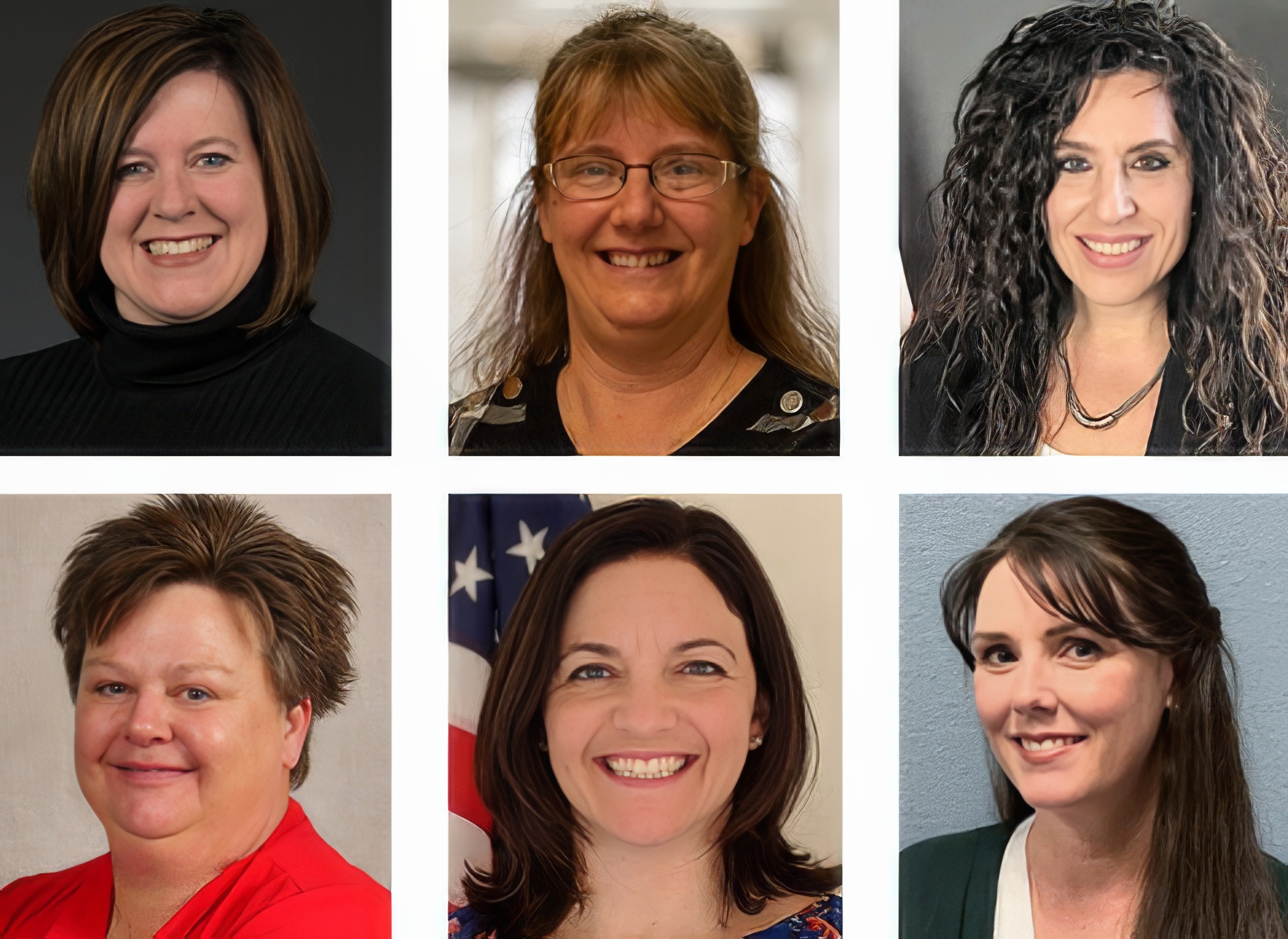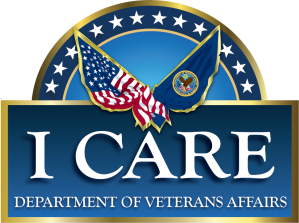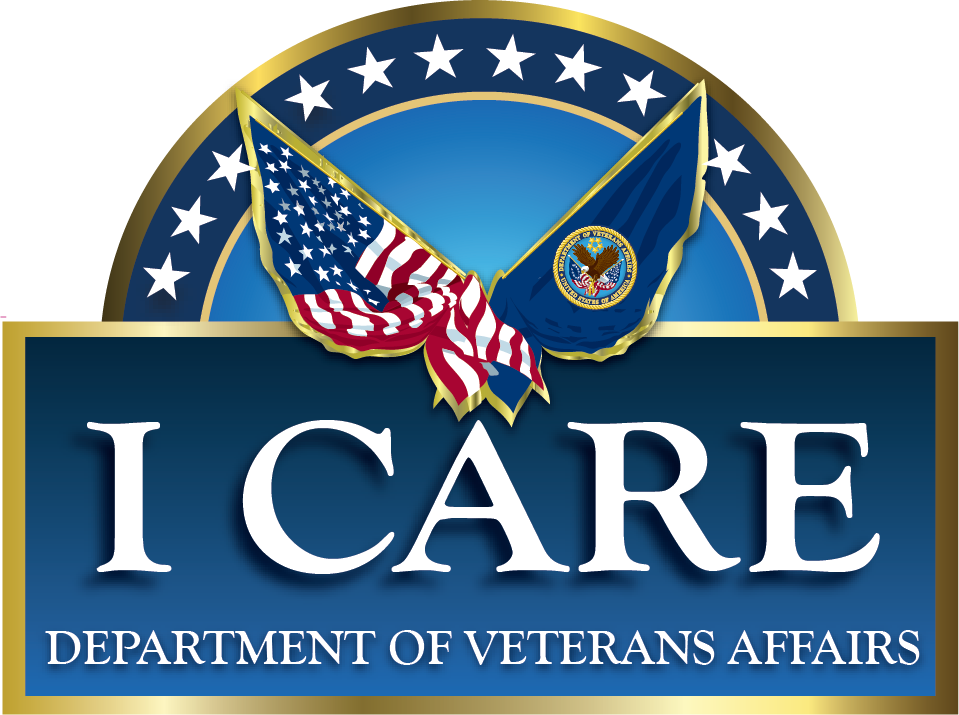
Bottom (left to right): Catherine Starr, Lori Murphy, Annelise Weston
Not pictured: Lisa Gualtieri, Jennet Boese, Karinne Davidson, and Patricia Sele
The coordinators of the VA Voluntary Service Volunteer In-Home Visitor Program (VIVP) are hereby nominated for the Secretary’s I CARE Honor Award. For approximately four months (since COVID-19), the coordinators have worked together to develop, implement, and promote a new virtual volunteer program, Compassionate Contact Corps (CCC). This program has continued to provide a valuable service to the well-being of many of our most vulnerable and high-risk (i.e., lonely and socially isolated) Veterans and their caregivers.
The program has already attracted the support and/or endorsement of internal organizations such as the Caregiver Support Program, Partner Violence Assistance Program, Social Work, National Chaplain Center, Transition and Care Management Program, Office of Geriatrics & Extended Care, Home Based Primary Care, Office of Mental Health & Suicide Prevention, Office of Patient-Centered Care and Cultural Transformation, Whole Health, Homeless Veterans Program, Women’s Health, and Hospice & Palliative Care. Current and potential external organizations include Blue Star Mothers of America, Pfizer Corp., AARP, Rotary International, Harvard College, and Bowlers to Veterans Link.
These coordinators have provided several trainings on the program and have already begun helping an additional 38 sites successfully implement their own program, following national standards (training guide, recruitment, tracking, and training), by the end of this fiscal year. These sites include rural areas such as Alaska, Arkansas, and Jackson, MS, and urban areas such as Houston, New York City, and Los Angeles, CA. This is entirely voluntary and on top of their already extensive workloads.
The Compassionate Contact Corps program has already been cited and selected as a Best Practice in Marion, IL, and Columbus, OH, and was a finalist for a Veteran Experience Office award (Fargo, ND). The coordinators of the Volunteer In-Home Visitor Program/Compassionate Contact Corps have exemplified the Department of Veterans Affairs (VA) Core Values in the following ways:
Integrity: Coordinators meet monthly and track their impact on a spreadsheet that is accessible for all coordinators to see and to remain accountable. This also assists in maintaining accountability to the VACO Voluntary Service program office. Based on the numbers reported from March – June 2020, more than 300 volunteers participated, making over 1500 telephone calls to more than 400 veterans. Volunteers have already logged about 4,000 hours, saving the Department of Veterans Affairs over $26,000.00 in salary. Since the Volunteer in Home Visitor program had the capacity for a quick recovery, their resilience to meet this virtual need is notable.
Commitment: Once the VAVS Program Management Office required all Volunteer In-Home Visitor Program (VIVP) coordinators to suspend their programs due to the high-risk demographics of the volunteers, Veterans, and caregivers, the discussion quickly shifted to how best to keep the program’s commitment. Recognizing the Veteran and caregiver’s needs were still there and that they already had highly trained volunteers, they decided to take the foundation they had developed over 12 years of VIVP and developed the Compassionate Contact Corps, a highly structured tele/video support program. This has allowed VA to maintain a level of engagement with Veterans, caregivers, and volunteers that would have been lost and, perhaps, difficult to regain.
Advocacy: The Compassionate Contact Corps coordinators’ determination to be resilient and find the good from the unfortunate opportunity presented led to several significant outcomes. They were not only able to keep almost all of their volunteers engaged (through a new virtual assignment), they were able to grow the program from VIVP and reach even more Veterans than before. For example, some Veterans lived in neighborhoods that volunteers didn’t feel comfortable visiting, but they would make phone calls. Some volunteers and Veterans didn’t feel comfortable starting off with a face-to-face meeting, but the new program allowed them to build rapport first. The program also allowed coordinators to match Veterans who lived in very rural areas or in distant locations. Another outcome has been the increased engagement with other program offices at the VACO level, as mentioned previously.
Respect: Participants in the Compassionate Contact Corps program treat Veterans and their caregivers with respect and dignity. Respecting their religious, cultural, political practices and lifestyle. Training includes empathetic listening, boundaries, and suicide prevention. Compassionate Contact Corps fills a gap for many lonely and socially isolated Veterans while honoring the veteran and his/her service. Volunteers in this program have the capacity to understand or feel, within their frame of reference, what their assigned Veteran may be experiencing. Volunteers using active listening techniques can establish trusting and caring relationships.
Excellence: Compassionate Contact Corps coordinators realized that flexibility in their program was essential. They reimagined what volunteers could do remotely since face-to-face was not an option. Virtual volunteerism catapulted this program into the future, enabling it to reach a much larger audience. It allows veterans to remain connected to their service provider while cultivating, in some instances, long-term friendships with their volunteer buddy. This program meets the psychological need for love, recognition, acceptance, socialization, security, and trust. It has been instrumental in lowering levels of anxiety, fear, and common stressors that advance the decline in health.







